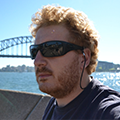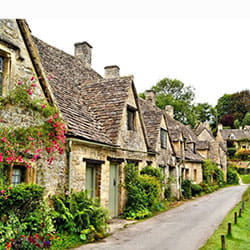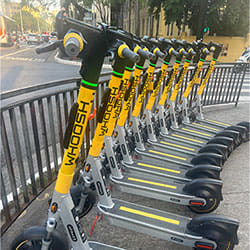- 2021.10.29
- OZ SLANG PART 2
As years go by and I live here now I can tell that my English is changing and it’s becoming more and more ‘Aussie.’
Let's start by saying that British English and Australian English are certainly closer than British English and American English are, from a phonetic point of view, from a lexical point of view, and from a grammatical point of view.
All this is mainly due to historical and political reasons. America (United States), although born as an English colony, has instead been a completely independent state since the 18th century whereas Australia (and more generally the Australian continent) is instead part of the British Commonwealth, ruled by the Queen of England. It is therefore a country politically linked to Great Britain, and which retains many customs and traditions of Great Britain.
The Australian population is still today, for the vast majority, of Anglo-Saxon origin. All this has contributed to the fact that, over time, the English spoken in America changed and transformed from what it was originally much more than what happened to the English spoken in Australia.
Differently from what happens between British English and American English - there are few differences between British English and Australian English from a grammatical point of view but the main difference is in the pronunciation.
When it comes to words Australian English derives directly from Cockney which is the English spoken in the British capital (originally from the East End neighbourhood to be precise) and more generally in the south-east of England. Even today, most of the inhabitants of Australia are of distant London origins, and, if spoken not too strongly, the Australian accent can be easily mistaken for the London one, and vice versa.
Over the centuries, Irish and Scottish accents have been added to this London Cockney, and his vocabulary has been enriched with colourful and particular expressions. These colourful and particular expressions (for which Australian English is known) derive from the original idioms of the Cockney dialect of the eighteenth and nineteenth centuries, that is, the one spoken when Australia began to be populated by the British. The Cockney English spoken in London is in fact still full of bizarre expressions, incomprehensible to a foreigner, but it was much richer in the past. While remaining very particular in its idioms, these expressions of the past have been lost in the current London Cockney (or more generally British) but have survived instead in Australian English. To these were then added the particular expressions used by English prisoners (we must not forget that Australia was born as an English colony for British deportees).
From all this mix, many typical Australian expressions were born, known throughout the Anglo-Saxon world for their number and peculiarities. Two for all, the words ‘pommy’ - which means English, a person from England - and ‘pommy land’ - which is England.
Another habit of Australian English is that of diminutives - both common and proper nouns - to which a vowel (generally "o") is added at the end. The final vowels of words, which we find very little in British and American English, are much more common in typical Australian words.
As for the pronunciation, it is - as mentioned before - very similar to the Cockney English. As in Cockney, therefore, the final syllables of the word are pronounced very broad (example: the word ‘corner’ is pronounced ‘conaa’, the word ‘guitar’ is pronounced ‘ghitaa,’ and so on). Often and willingly, however, it is a typical Australian habit to contract the words of a sentence so as to form almost a single word (example: the expression ‘could have been’ becomes almost a ‘coudda been’) more similar to the American English ‘gotta’ or ‘wanna’.
To familiarize yourself with Australian English, direct listening is always the best method. Listening to a film or a TV show in the original language can in fact help you understand the characteristics of a language and an accent, just like listening to it live.
Among the many (and excellent quality) Australian productions I’d recommend are the TV series “Wentworth” or “Wanted.”






























































